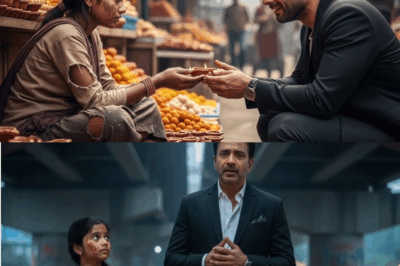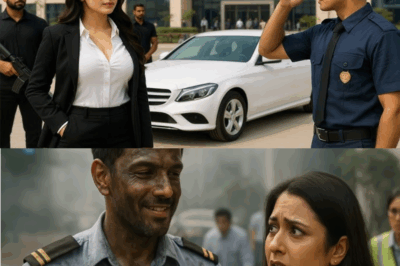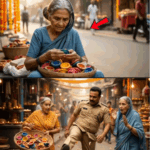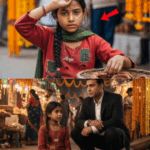Bollywood Mourns a Legend: Asrani, the Eternal Master of Laughter, Passes Away at 84
A Nation in Mourning
India’s film industry fell silent on 20 October 2025, as news broke of the death of Govardhan Asrani, lovingly known to generations simply as Asrani. The veteran actor, who brought joy and laughter to millions through his iconic comic roles, passed away in Mumbai at the age of 84 after complications related to breathing.
From the grand studios of Bollywood to the smallest cinema halls across the country, tributes poured in. Screens once filled with his bright smile and sharp comic timing now reflected a sense of loss.
Among the first to express grief was Dharmendra, his longtime friend and co-star. “Asrani, your departure has broken my heart,” he wrote. “You weren’t just a wonderful actor — you were a true human being and my dear companion. People like you come only once in a lifetime.”
A Life Built on Laughter
Born in Jaipur on 1 January 1941, Asrani’s journey to the silver screen was as humble as it was inspiring. The son of a carpet seller, he grew up in modest surroundings but nurtured a dream much larger than his circumstances.
He studied at St. Xavier’s School and later at Rajasthan College, but the world of cinema called out to him stronger than any academic pursuit. After moving to Mumbai, he trained in acting and began his long and illustrious career — one that would eventually span five decades and over 350 films.
The Breakthrough Years
Asrani’s early years in the industry were marked by struggle and perseverance. He began with small, often unnoticed roles in the late 1960s. His first notable performance came in “Hare Kaanch Ki Choodiyan” (1967), where his natural expressions and timing caught attention.
But it was in the 1970s that Asrani’s career truly flourished. His collaborations with directors like Hrishikesh Mukherjee and co-stars such as Rajesh Khanna, Amitabh Bachchan, and Dharmendra turned him into a household name.
In “Bawarchi” (1972) and “Chupke Chupke” (1975), Asrani brought warmth and effortless humor to every scene. And then came the film that would immortalize him — “Sholay” (1975).
“Angrezon ke zamane ke jailer hain hum …”
With just one unforgettable line, Asrani etched himself permanently into Indian pop culture. His portrayal of the quirky, self-important jailer in Sholay remains one of the most iconic comic performances in Hindi cinema.
Director Ramesh Sippy once admitted that the scene was meant to be a minor comic relief, but Asrani’s delivery was so magnetic that the entire crew burst into laughter — and history was made.
Even decades later, that dialogue is repeated by fans, mimicked by comedians, and shared endlessly on social media — a timeless tribute to his brilliance.
The Golden Era of the 1970s and 1980s
Throughout the 1970s and 1980s, Asrani was everywhere. His face became synonymous with joy. He was the friendly teacher, the bumbling police officer, the lovable servant — roles that may have been small on paper but immense in impact.
By the end of the 1980s, he had appeared in over a hundred films, working with virtually every major star of his time.
Unlike many comic actors who relied on exaggeration, Asrani’s humor came from humanity. His characters were relatable — simple men caught in absurd situations, who used wit instead of cynicism to survive life’s chaos.
Reinvention in a Changing Industry
As Bollywood evolved in the 1990s and 2000s, Asrani adapted with remarkable ease. Where many of his contemporaries faded into memory, he continued to reinvent himself for a new generation of viewers.
Films like “Hera Pheri”, “Dhamaal”, “Malamal Weekly”, “Chup Chup Ke”, and “Welcome” showcased that his comic timing remained as sharp as ever.
Younger actors like Rajpal Yadav, Johnny Lever, and Arshad Warsi frequently cited Asrani as a mentor. “He taught us that comedy isn’t about noise,” said Rajpal Yadav in a recent interview. “It’s about truth. People laugh when they recognize themselves in your character.”
Beyond the Screen
Off the camera, Asrani was a man of immense humility. Friends recall his kindness, his love for food and music, and his habit of cheering up anyone who was feeling low.
He often said: “Comedy isn’t only about making people laugh — it’s about taking away their pain.”
This philosophy guided both his work and his life. His laughter wasn’t just performance — it was compassion.
He married actress Kokila Asrani, and together they built a small but warm family home in Juhu, Mumbai. Their son, Sajan Asrani, followed in his father’s creative footsteps.
The Final Curtain
In mid-October 2025, Asrani was admitted to Arogya Nidhi Hospital in Juhu after experiencing breathing problems. Despite doctors’ best efforts, his condition worsened, and on the afternoon of 20 October, he breathed his last.
He was cremated the same evening, according to family wishes for a simple ceremony. Close friends, including Dharmendra, attended, their faces heavy with grief.
Standing beside his photograph, Dharmendra said softly, “He told me once — ‘Dharma ji, keep smiling, that’s life’s biggest gift.’ Today that smile feels very far away.”
A Legacy Written in Laughter
Asrani’s passing leaves a void in Indian cinema that cannot be filled. His career bridged generations: from the classic black-and-white frames of the 1960s to the digital age of OTT platforms.
He proved that laughter doesn’t age — it evolves.
In 2020, he received the Lifetime Achievement Award for his outstanding contribution to Indian cinema. On stage, he had said: “I only wanted to make people laugh. I didn’t realize life had gone by while doing it.”
Those words now feel prophetic.
The Heart of His Art
What made Asrani special was not just his timing, but his truth. His humor was clean, his performances heartfelt. He showed that comedy could be intelligent, emotional, and deeply human.
He could make an audience laugh with a single glance, or move them with a single pause. His craft carried empathy — perhaps the rarest quality in entertainment today.
That’s why his death feels personal to so many. For every Indian household that grew up on Doordarshan, for every fan who watched Sholay on repeat, for every family that gathered on weekends to watch his films — Asrani wasn’t just a comedian. He was family.
Tributes from the Industry
Actors, directors, and politicians alike paid homage to the man who defined an era of laughter.
Amitabh Bachchan tweeted: “An actor who could light up any frame. The laughter he gave us will echo forever.”
Hema Malini called him “a rare blend of grace and wit.”
Salman Khan wrote: “We lost the legend who taught us all that comedy is serious art.”
Across social media, fans shared clips of his most memorable scenes. The comment sections were filled with words like “childhood,” “innocence,” “joy,” — proof that his art had touched millions.
The Films That Shaped an Era
For those who wish to revisit his brilliance, here are just a few of his unforgettable films:
Bawarchi (1972)
Chupke Chupke (1975)
Sholay (1975)
Aaj Ka Mahaatma (1976)
Gol Maal (1979)
Hera Pheri (2000)
Dhamaal (2007)
Malamal Weekly (2006)
In each, he brought something new — a sparkle, a surprise, a sense of mischief that never grew old.
More Than Just a Comedian
Though celebrated as a comedian, Asrani was a versatile actor. His performances in serious films such as Koshish and Safar proved his emotional depth.
He never chased stardom. He simply loved his craft — and that devotion made him timeless.
What He Leaves Behind
Asrani is survived by his wife Kokila Asrani and son Sajan. But beyond his family, he leaves behind an artistic lineage — every actor who makes India laugh today owes something to him.
His last two films, Bhooth Bangla and Haiwaan, are expected to release posthumously in 2026, offering audiences one final chance to see his magic on screen.
A Farewell in His Own Words
In an interview a few years ago, Asrani had said,
“If ever you feel sad, remember your own laughter — it never dies.”
Today, as the industry mourns him, those words ring truer than ever.
He may be gone, but his laughter — the laughter that once filled theatres, homes, and hearts — will echo for generations.
Epilogue: The Sound of Laughter
In a world often divided by language, faith, and politics, Asrani’s laughter was universal. It united people. It healed people.
His career reminds us that greatness in cinema isn’t measured by lead roles or box-office numbers, but by the ability to touch souls.
So the next time you watch Sholay and hear that immortal line —
“Angrezon ke zamane ke jailer hain hum!” —
smile a little wider. Because somewhere up there, Asrani is smiling back.
News
🌼 दियों की रोशनी में लौटी आर्या
🌼 दियों की रोशनी में लौटी आर्या दिवाली की दोपहर थी।पूरा शहर रौनक और रंगों में डूबा हुआ था। सड़कों…
शीर्षक: “हरिश्चंद्र जी – जब मालिक ने खुद बैंक में लाइन लगाई”
शीर्षक: “हरिश्चंद्र जी – जब मालिक ने खुद बैंक में लाइन लगाई” सुबह के ठीक 11 बजे, शहर के सबसे…
शीर्षक: “राजू और हिमांशी — मुस्कान जो लौट आई”
शीर्षक: “राजू और हिमांशी — मुस्कान जो लौट आई” यह है राजू, जो अभी मुश्किल से दस या ग्यारह साल…
शीर्षक: “रिया वर्मा की कहानी – जब 12 साल की बच्ची ने ₹500 करोड़ का घोटाला रोक दिया”
शीर्षक: “रिया वर्मा की कहानी – जब 12 साल की बच्ची ने ₹500 करोड़ का घोटाला रोक दिया” कभी-कभी जिन…
“काव्या की जीत: जब इंसानियत ने किस्मत को बदल दिया”
“काव्या की जीत: जब इंसानियत ने किस्मत को बदल दिया” शहर की भीड़भाड़ वाली सड़क पर ट्रैफिक का शोर गूंज…
आरव और समीरा की कहानी
आरव और समीरा की कहानी सुबह के आठ बजे थे। “अमृता टेक्नोलॉजीज़ प्राइवेट लिमिटेड” का विशाल गेट खुलते ही एक…
End of content
No more pages to load












